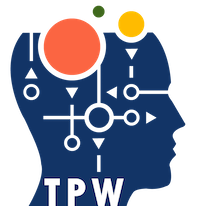‘May the best man win”, are very wise words that is used before competitions to mark that the most deserved wins. In this ever-changing world, where competition is increasing each day like wild fire, chartering your path is extremely difficult. Getting selected for one’s dream job is surely not a cake walk and each one tries to give their very best to achieve it. When you see people working so hard for something passionately and consistently, would not you want to ensure that all processes are free of bias and completely fair. A very efficient way of ensuring this is by using psychometric tests as a means of evaluation.
Psychometric tests, or commonly known as aptitude test, are a standard and scientific method used to measure an individuals’ mental capabilities and suitability for a role. This is done by evaluating their aptitude and personality characteristics for the concerned role.
This way of testing, to test a candidates’ suitability for a role, forms a common part of the job interview process at many companies across various sectors around the world. They generally consist of a series of timed questions, under three categories – numerical (maths questions), verbal (reading comprehension questions) or logical (diagrammatic questions).
Employers lookout for different results depending on the job role requirement when analysing a test. The expected outcome of the test varies as per the need that expectations of the role. The criteria to judge are decided by the test taker based on what skills the work demands. This is why it is imperative that one prepares for the test on the basis of the role they are applying for to make their way through. For example, a psychometric test and expected results for the position of a school teacher and an investment banker will be very different.
One’s performance in the test is directly related to their preparation. Some very basic yet important points to keep in mind while preparing for a psychometric test are now listed. Firstly, one should prepare with the idea of excelling and practice many tests since we know, practice makes perfect. Secondly, one must not leave our preparing for their weak areas due to the fear of not being able to do something as covering all areas is a must, in order, to be fully prepared for the test. Thirdly, it’s a myth that you can clear a test well by just common sense, it’s very important to study and cover the syllabus for the test and be prepared. Fourthly, one should never overlook the extra details surrounding the test like that can lead to chaos on the final test day, for instance, the test centre, date, time, etc. Lastly, motivation is a key driver to success so one should be genuinely dedicated and motivated while preparing for and taking the test for best results.
One should never take a psychometric test with the fear of passing or failing. There is nothing like pass or fail, it is just about how well you perform depending on your preparation and suitability of your skills for the job role in question.
Psychometric tests are becoming increasingly popular with time, as the need for finding the best fit for a role is a must. These tests are used for recruitment and selection process that helps in successful planning and team development. Moreover, another added advantage is its reliability and validity. With the help of MHQ, the test can be validated which in turn provides the assurance to rely on it for making the right choices.
The test while assisting the employers in choosing the most suited candidate, also gives confidence to the candidate that he is on the right path best suited for him considering his skills and capabilities. Overall, it is beneficial for both the sides, the test taker and the test giver to draw the right conclusions and achieve the desired outcome.
Sources:
http://www.careergym.com/blog_comment/6_reasons_why_candidates_fail_psychometric_tests
https://www.alchemyformanagers.co.uk/topics/KEkzAnJbWGS3TJfA.html
https://www.tandfonline.com/doi/abs/10.1207/s15324818ame0703_4

Umani Agarwal has recently finished her graduation from Delhi University, in psychology and sociology. She is in charge of community development in IIBP.




